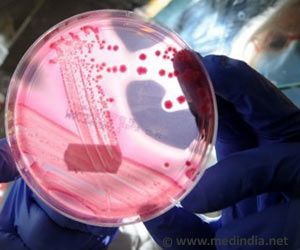Repeated incidents of inflammation in the stomach could mean a higher risk to colon cancer — new research released shows this.
“A quarter of the world’s population is affected by some type of gut inflammation and these patients always have a much higher chance of developing colon cancer,” said lead author Xiling Shen, associate professor at Duke University in North Carolina, US.
The scientists focussed on a microRNA — a class of naturally occurring, small non-coding ribonucleic acid (RNA) molecules — called miR-34a that gives cancer stem cells the odd ability to divide asymmetrically. This process controls the cancerous stem cell population and generates a diverse set of cells.
However, the problem showed up when the mice’s tissues became inflamed. Without any microRNA miR-34a, their stem cells quickly grew out of control and formed many tumour-like structures, the researchers elucidated.
